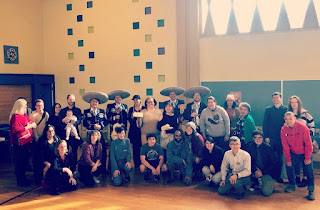THEME CONVERSATION this Sunday:
This Sunday, I am hoping to introduce a Taize chant (Nothing Can Trouble, in VU 290) to our children and youth using the time for Conversation.
I think it is very timely at such time as this, and it is beautiful and comforting.
I think it is very timely at such time as this, and it is beautiful and comforting.
What I am thinking is
I’ll sing it for children and youth (and the congregation) as I introduce this chant for them,
and explain why I chose this one for chanting together,
then, tell my story of what I experienced in Taize community in February, 2005.
I’ll sing it for children and youth (and the congregation) as I introduce this chant for them,
and explain why I chose this one for chanting together,
then, tell my story of what I experienced in Taize community in February, 2005.
When we pray, we just need to bring ourselves, sit and talk to the heart of ourselves and to God.
‘What’s happening around me and around the world? What I am afraid of? What I am hoping for?
How is God related to me and to the world now?’
‘What’s happening around me and around the world? What I am afraid of? What I am hoping for?
How is God related to me and to the world now?’
I’ll introduce a prayer to our children and youth:
“Jesus our peace,
by the Holy Spirit you always come to us.
And in the deepest part of our soul,
there is the wonder of a presence.
Our prayer may be quite poor,
But you pray within us.”
by the Holy Spirit you always come to us.
And in the deepest part of our soul,
there is the wonder of a presence.
Our prayer may be quite poor,
But you pray within us.”
We need to wage love and peace. Peace is active, something we make. (Inspiration from my friend Lauren Aldred)
At the end, we will chant together Nothing Can Trouble (VU 290) a few times.


%5EJ%202023.jpg)
